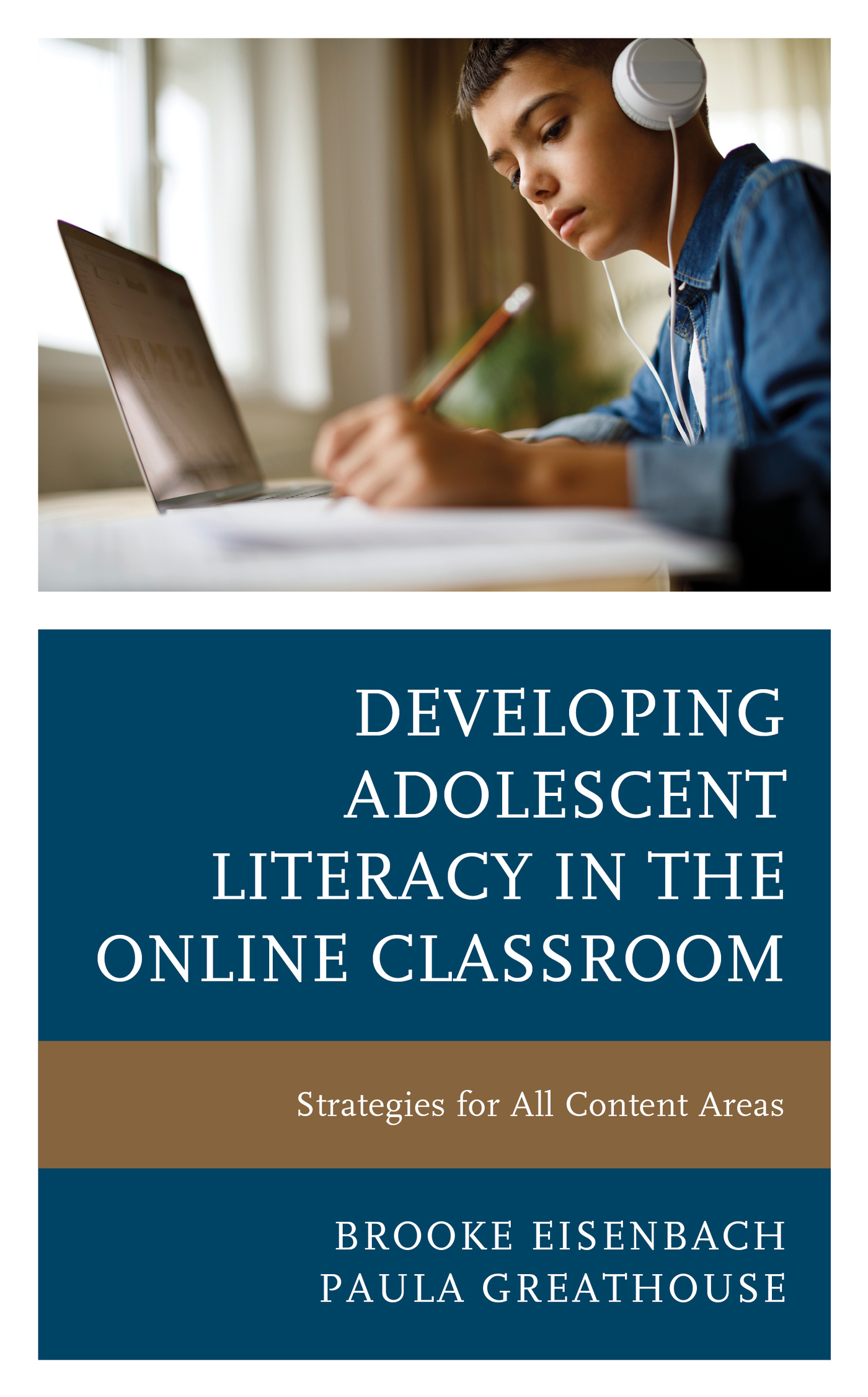Developing Adolescent Literacy in the Online Classroom
Developing Adolescent Literacy in the Online Classroom
Strategies for All Content Areas
Brooke Eisenbach
Paula Greathouse
ROWMAN & LITTLEFIELD
Lanham Boulder New York London
Published by Rowman & Littlefield
An imprint of The Rowman & Littlefield Publishing Group, Inc.
4501 Forbes Boulevard, Suite 200, Lanham, Maryland 20706
www.rowman.com
6 Tinworth Street, London SE11 5AL, United Kingdom
Copyright 2020 by Brooke Eisenbach and Paula Greathouse
All rights reserved. No part of this book may be reproduced in any form or by any electronic or mechanical means, including information storage and retrieval systems, without written permission from the publisher, except by a reviewer who may quote passages in a review.
British Library Cataloguing in Publication Information Available
Library of Congress Cataloging-in-Publication Data
Names: Eisenbach, Brooke, author. | Greathouse, Paula, author.
Title: Developing adolescent literacy in the online classroom : strategies for all content areas / Brooke Eisenbach, Paula Greathouse.
Description: Lanham : Rowman & Littlefield, [2020] | Includes bibliographical references. | Summary: This book provides middle and high school virtual teachers a variety of strategies for translating traditional literacy instructional practices from the brick-and-mortar classroom to the online learning context.Provided by publisher.
Identifiers: LCCN 2020004789 (print) | LCCN 2020004790 (ebook) | ISBN 9781475851014 (cloth) | ISBN 9781475851021 (paperback) | ISBN 9781475851038 (epub)
Subjects: LCSH: Language arts (Middle school)Computer-assisted instruction. | Language arts (Secondary)Computer-assisted instruction. | Literacy. | Web-based instruction. | Computers and literacy.
Classification: LCC LB1631.3 .E37 2020 (print) | LCC LB1631.3 (ebook) | DDC 428.0071/20285dc23
LC record available at https://lccn.loc.gov/2020004789
LC ebook record available at https://lccn.loc.gov/2020004790
 TM The paper used in this publication meets the minimum requirements of American National Standard for Information Sciences Permanence of Paper for Printed Library Materials, ANSI/NISO Z39.48-1992.
TM The paper used in this publication meets the minimum requirements of American National Standard for Information Sciences Permanence of Paper for Printed Library Materials, ANSI/NISO Z39.48-1992.
Introduction
If anyone suggested that we would one day teach students in a virtual capacityin a classroom separated by both time and spacewe would have assumed they were speaking of a world only found within the pages of a science fiction novel. Online teaching and learning? What is that? How does that work? How do we effectively teach students we never meet?
Our education programs in college prepared us for classroom teaching. Our professors helped guide us in understanding adolescent development, pedagogy, and classroom content. As we entered the profession, we gained experience working with our students. With each passing year, we uncovered ways of connecting, building community, and guiding learners as readers and writers. Our methods relied on the traditional setting. How could such strategies and experiences translate to this new learning context?
Designing and implementing effective literacy instructional approaches for students can be one of the most pressing challenges facing schools, including virtual schools. Neglecting to consider the magnitude of literacy skills needed in todays world, and not teaching literacy effectively, may lead to difficulties later in life (Costa & Kallick, 2000; Houge et al., 2007). Despite the growing population of learners attending school in the online space, many of todays virtual teachers lack formal preparation for virtual literacy instruction. For most educators, their toolbox of literacy strategies focuses on approaches intended for the traditional classroom context. But methods of reading and writing within the online classroom differ from that of the brick-and-mortar environment. Instead of engaging with one another in a face-to-face setting, virtual students are educated through synchronous and asynchronous channels. Often separated by time and space, virtual teachers encounter a greater degree of difficulty in connecting, engaging, and communicating with students (Eisenbach et al., 2018). Thankfully, research in virtual education points to the growth and development of new, inclusive virtual means of fostering student literacy growth. Adolescent readers and writers can utilize new technologies, and teachers can implement a diverse array of instructional strategies in the reading, discussion, analysis, and writing of texts.
As a growing body of diverse adolescent learners sign into virtual classrooms, it is essential that online educators uncover effective tools and strategies for developing literacy and engaging online learners in literacy practices. Additionally, twenty-first-century task demands require students to become literate beyond content. As virtual educators, it becomes imperative to include pedagogical approaches that allow adolescent learners to read, write, and discuss both the word and the world in an effort to promote equity, access, and opportunity. But what do these strategies look like in the virtual classroom?
In recent years, we have had the honor of meeting and chatting with teachers from across the country. Our conversations with virtual teachers pointed toward a need for strategies that encourage the literacy development of online learners. The goal of this text is to provide teachers a starting point in considering how we might effectively transfer our knowledge of literacy pedagogy to the online learning platform. In other words, we want virtual teachers, or teachers who are teaching in hybrid courses or wish to include technology in the classroom, to utilize this book as a guide to taking traditional literacy strategies learned in their teacher preparation and transfer these to the virtual environment.
Book Organization
Before focusing on the academic, we must find ways to cultivate community with virtual learners. In the early chapters, we focus on setting the stage for effective virtual learning. We begin by sharing strategies for establishing and maintaining effective communication with students and families (chapter 1). We then move forward in sharing techniques for motivating online learners towards consistent, active engagement in the virtual setting (chapter 2). Finally, we offer strategies intended to aid online learners in forging their unique reader and writer identities (chapter 3).
We then transition from establishing connections to sharing strategies for encouraging and educating our virtual students as literacy learnersassisting virtual learners getting ready to read and write (chapter 4), formulating questions during the reading process (chapter 5), collaborating and conversing with fellow virtual learners (chapter 6), and engaging in critical literacy (chapter 7). This portion of the book highlights pedagogy that translates to the virtual classroom as we assist our students in growing as critical consumers of knowledge. After sharing strategies for reading development, we conclude with suggestions for virtual reading comprehension assessment (chapter 8).
The final chapters move from the focus on reading to a focus on writing. We begin by providing virtual teachers insight into instruction and applications that aid online learners throughout the writing processfrom brainstorming to outlining to drafting and finalizing text (chapter 9). Then, we offer techniques for engaging virtual learners in multiple forms and purposes of writing (chapter 10). Finally, we round out the section with attention to writing assessment and accountability within the online context (chapter 11).
Next page
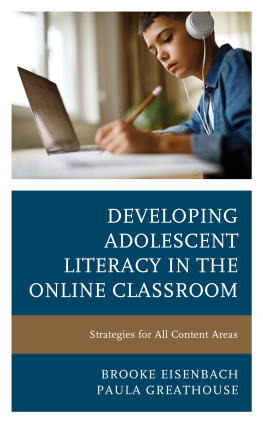
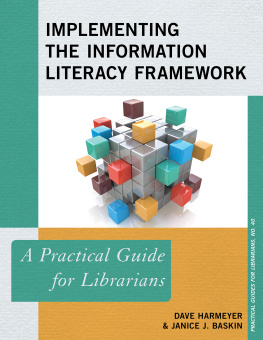

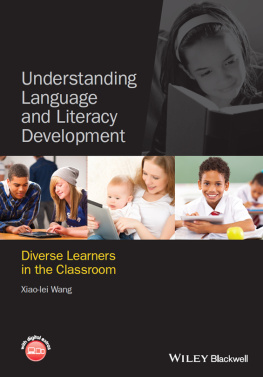
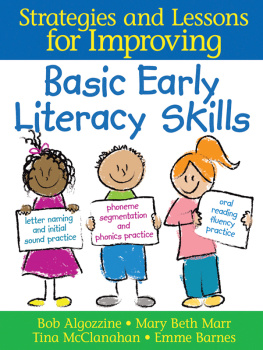
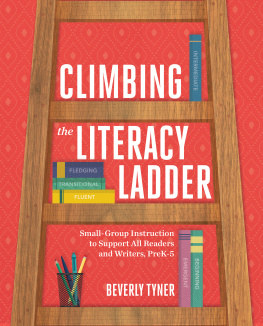
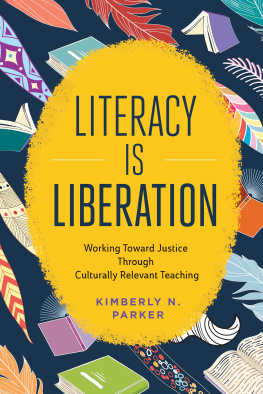
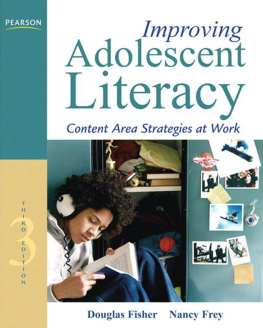
 TM The paper used in this publication meets the minimum requirements of American National Standard for Information Sciences Permanence of Paper for Printed Library Materials, ANSI/NISO Z39.48-1992.
TM The paper used in this publication meets the minimum requirements of American National Standard for Information Sciences Permanence of Paper for Printed Library Materials, ANSI/NISO Z39.48-1992.